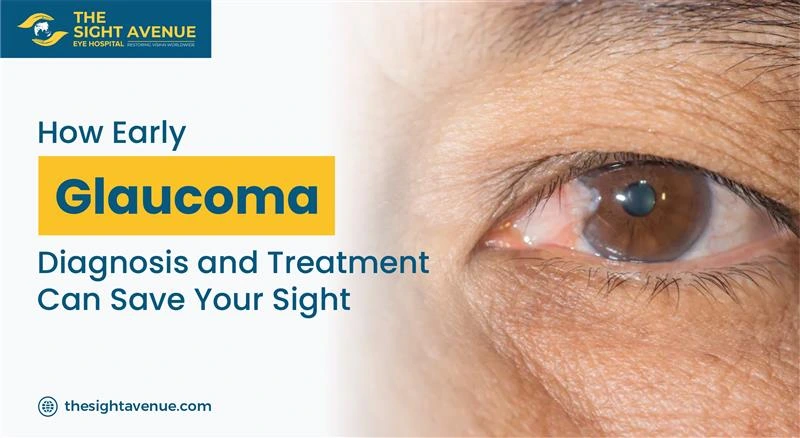What is Retinal Detachment Surgery? Diagnosis and Treatment Explained

Retinal detachment is a very serious disease that requires good care and treatment; otherwise, it can get worse if left untreated because it can easily cause permanent vision loss. But in this modern world, every disease has a cure and this disease can also be treated with retinal detachment surgery. But maybe you’re wondering what retinal detachment surgery is and if it's safe or not? Then don’t worry, because we will provide all the necessary information on this blog.
What is Retinal Detachment?
The retina is a very thin layer of tissue which usually found at the back of the eye. This layer is commonly responsible for converting light into neural signals and sending those signals to the brain, which help a person’s brain with the visual recognition of an image. Simply, the retina helps a person’s eye to recognize what they are seeing; it’s just like a filter for the eye. Retinal detachment occurs when the retina separates from the underlying tissue, disrupting its normal function and threatening vision loss.
Causes and Risk Factors
Retinal detachment can happen to anyone, but certain factors increase the risk:
- Natural Aging Process: As we age, the vitreous (the gel-like substance in the eye) can shrink and pull away from the retina, leading to tears.
- Trauma: A direct blow to the eye or head can cause retinal detachment.
- Cataract Surgery: Those who have undergone cataract surgery may have a higher risk of retinal detachment.
- Genetic Predisposition: A family history of retinal detachment increases the likelihood of developing the condition.
- Thinner Retina: People with severe myopia have a thinner retina, making it more susceptible to detachment.
1. Aging:
2. Eye Injuries:
3. Previous Eye Surgery:p>
4. Family History:
5. Extreme Nearsightedness (Myopia):
Know More: Laser surgery for retinal tears
Symptoms of Retinal Detachment
Retinal detachment is a medical emergency, and recognizing the symptoms early is crucial for preserving vision. Symptoms include:
- Description: Small specks or cobweb-like shapes that drift through your field of vision.
- Description: Seeing flashes of light, especially in the peripheral vision, can indicate a retinal tear or detachment.
- Description: A dark shadow or curtain that starts in one part of the vision and spreads can be a sign of retinal detachment.
- Description: Vision may become blurry or distorted as the retina detaches.
1. Sudden Onset of Floaters:
2. Flashes of Light:
3. Shadow or Curtain Over Vision:
4. Blurred Vision:
Diagnosing Retinal Detachment
If retinal detachment is suspected, a prompt and thorough eye examination is essential. Diagnostic tests include:
- Process: The eye doctor uses special eye drops to widen the pupil and examine the retina for any tears or detachment.
- Usage: If the view of the retina is blocked by blood or other obstructions, an ultrasound can help visualize the retina's position.
- Function: OCT provides detailed images of the retina's layers, helping to identify any areas of detachment or thinning.
1. Dilated Eye Exam:
2. Ultrasound Imaging:
3. Optical Coherence Tomography (OCT):
Know More: Most Common Cause Of Retinal Damage
Treatment Options of Retinal Detachment Surgery
The primary goal of retinal detachment surgery is to reattach the retina and prevent further vision loss. Several surgical options are available, depending on the severity and type of detachment:
- Procedure: This is a less invasive procedure where a gas bubble is injected into the vitreous cavity. The bubble presses the retina against the wall of the eye, allowing it to reattach.
- Follow-Up: After the procedure, patients must maintain a specific head position to keep the bubble in place.
- Procedure: A flexible band, or "buckle," is placed around the eye's circumference. The band gently pushes the eye inward, helping the retina reattach.
- Advantages: Scleral buckling is effective for many types of retinal detachments and can be performed under local or general anesthesia.
- Procedure: The vitreous gel is removed from the eye and replaced with a saline solution or gas bubble. This allows the surgeon to directly access and repair the retina.
- Usage: Vitrectomy is often used for more complex or severe cases of retinal detachment.
- Procedure: A laser is used to create small burns around the retinal tear, creating scar tissue that seals the retina to the underlying tissue.
- Usage: Laser surgery is often combined with other procedures or used to repair small tears before they lead to full detachment.
1. Pneumatic Retinopexy:
2. Scleral Buckling:
3. Vitrectomy:
4. Laser Surgery (Photocoagulation):
Related Post: Laser Eye Surgery
Preventing Retinal Detachment
Although retinal detachment cannot be avoided, various steps may lower the risk:
- Early Detection: Routine eye exams can detect retinal issues before they lead to detachment.
- Follow-Up: After the procedure, patients must maintain a specific head position to keep the bubble in place.
- Safety Measures: Wearing protective eyewear during sports or other activities can prevent injuries that might cause detachment.
- Control: Managing conditions like diabetes and high blood pressure can help prevent complications that might lead to retinal detachment.
1. Regular Eye Exams:
2. Protecting Your Eyes:
3. Managing Health Conditions:
Conclusion
Retinal detachment is really a serious condition, but with advances in surgical techniques, many people who experience retinal detachment can have their vision restored. Early diagnosis and prompt treatment are crucial for the best outcomes. So if you're also considering getting the right treatment to cure retinal detachment, then feel free to consult with the best eye hospital in Gurgaon at The Sight Avenue Hospital and secure your eyes.
Eye problems? Searching for an eye specialist near me in Delhi NCR? The Sight Avenue has 5 eye clinics in Delhi NCR. Contact us today!
Eye Hospital in Delhi
- The Sight Avenue
- The Sight Avenue
- The Sight Avenue
E-82-A, Ground Floor, Hansraj Gupta Rd, Greater Kailash I, New Delhi, Delhi 110048
Email:enquiry@thesightavenue.com
Tel : 011-4666 0666
Mob : +91-8883330799
Fortis Hospital, Escorts Okhla, New Delhi
Fortis Hospital, Vasant Kunj, New Delhi
Recent Post





